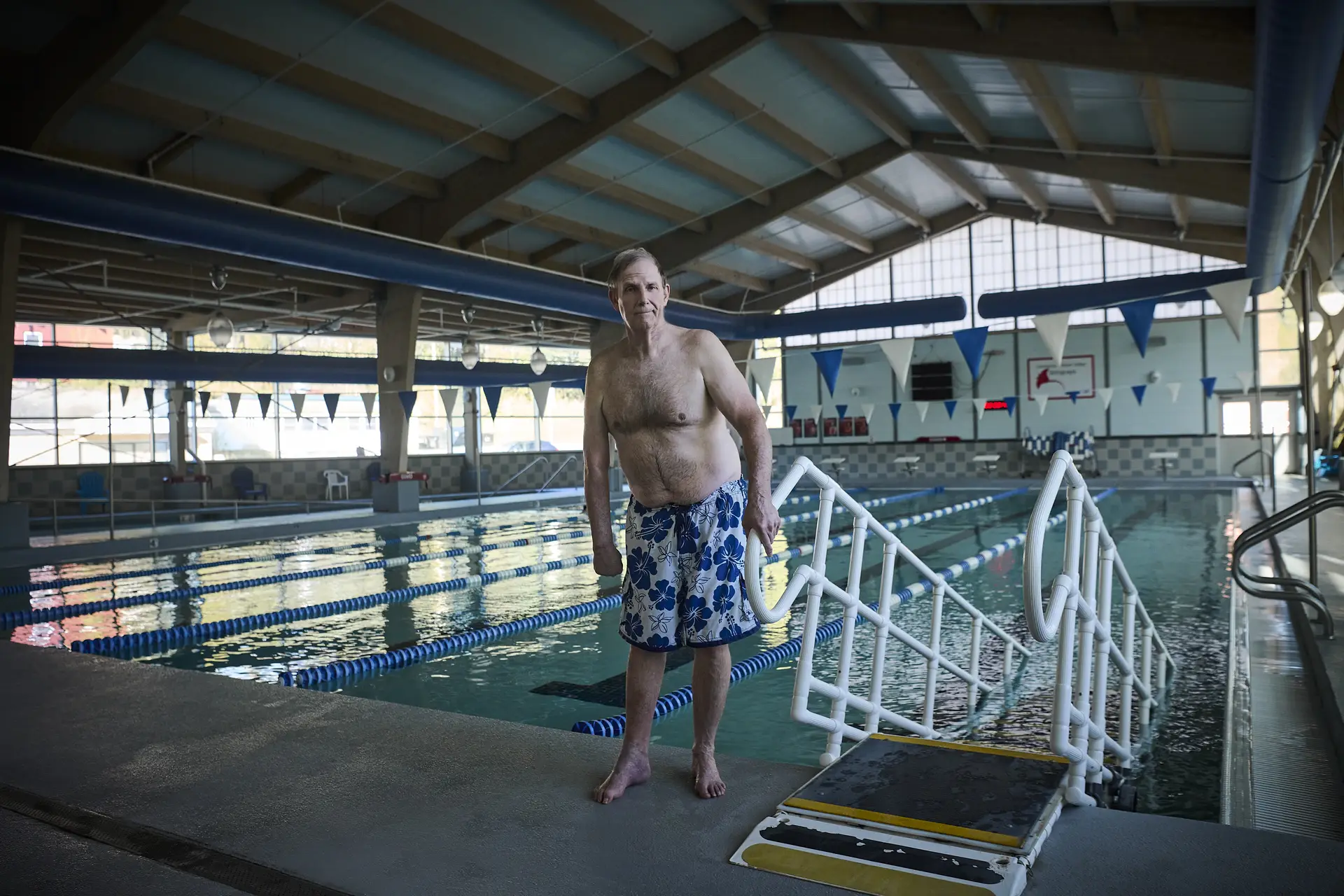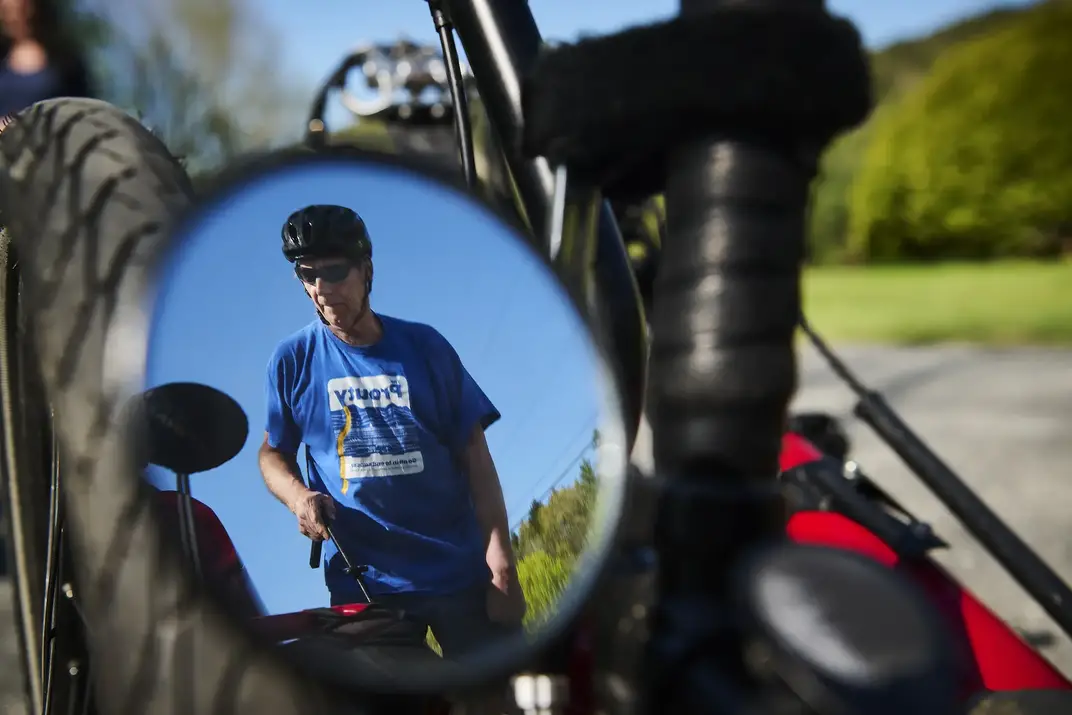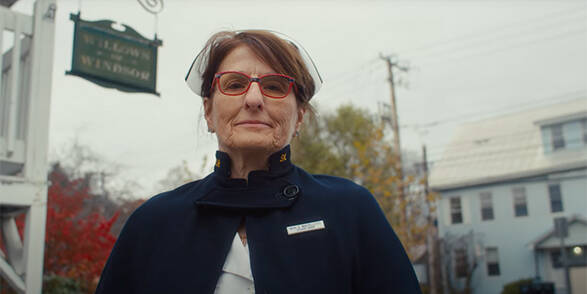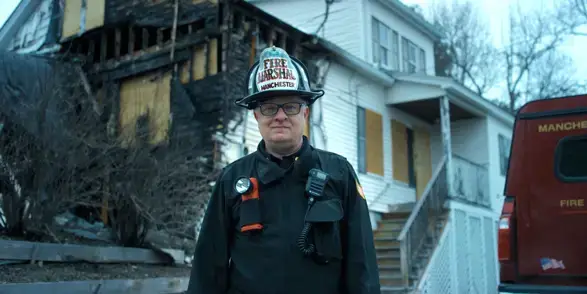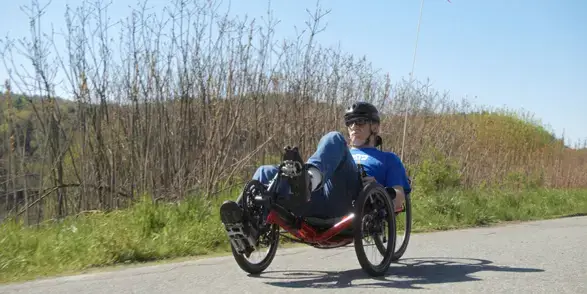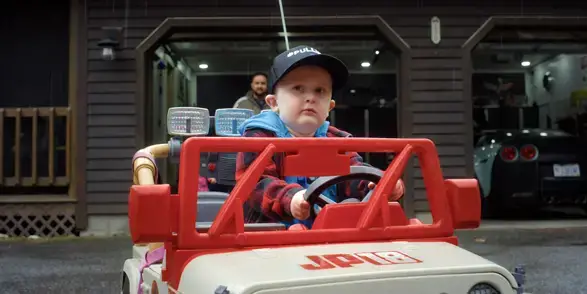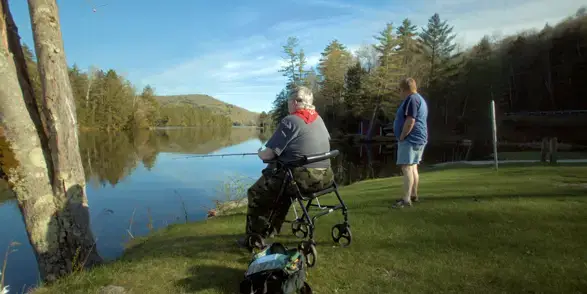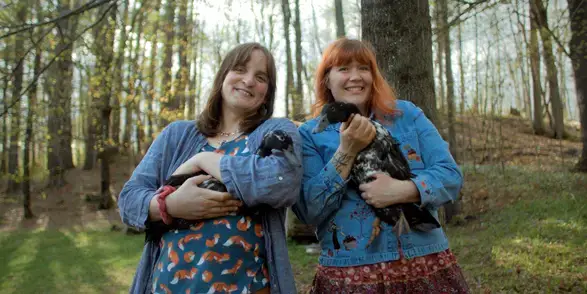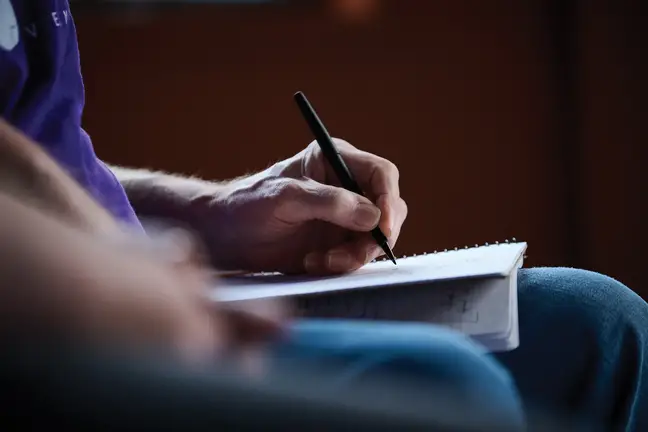
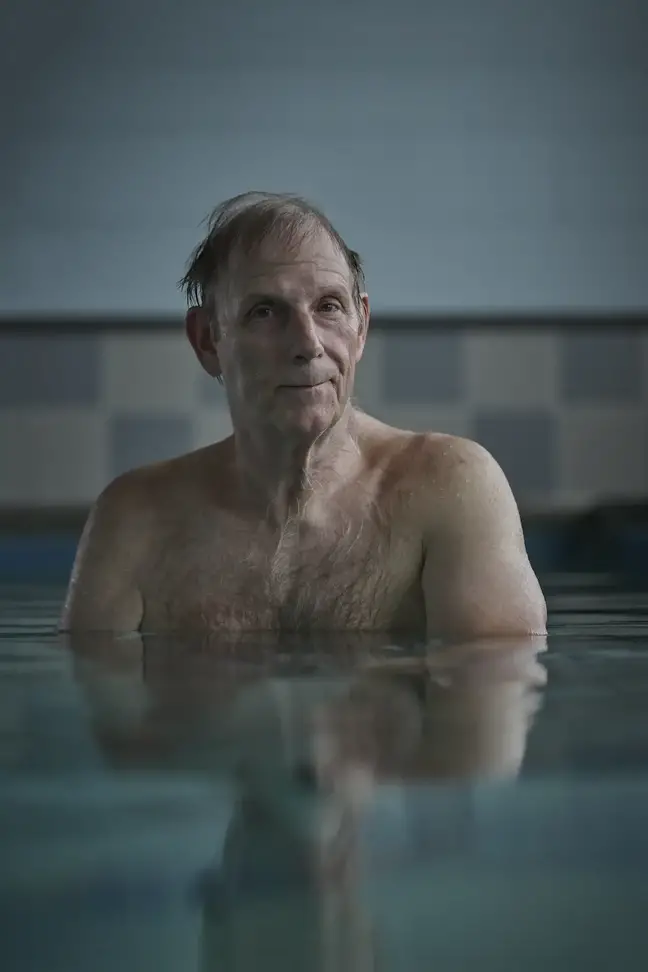
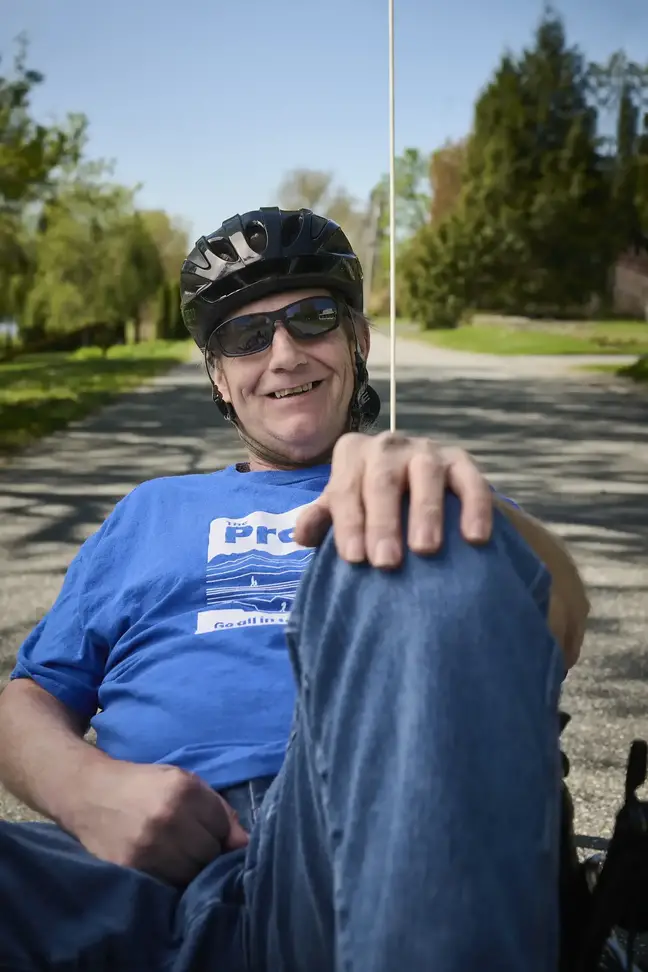
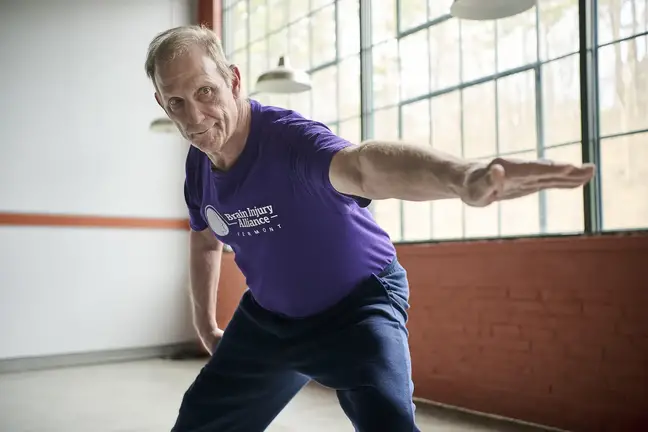
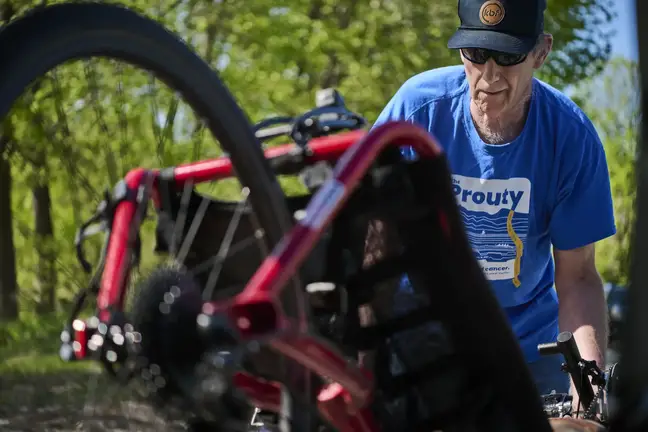
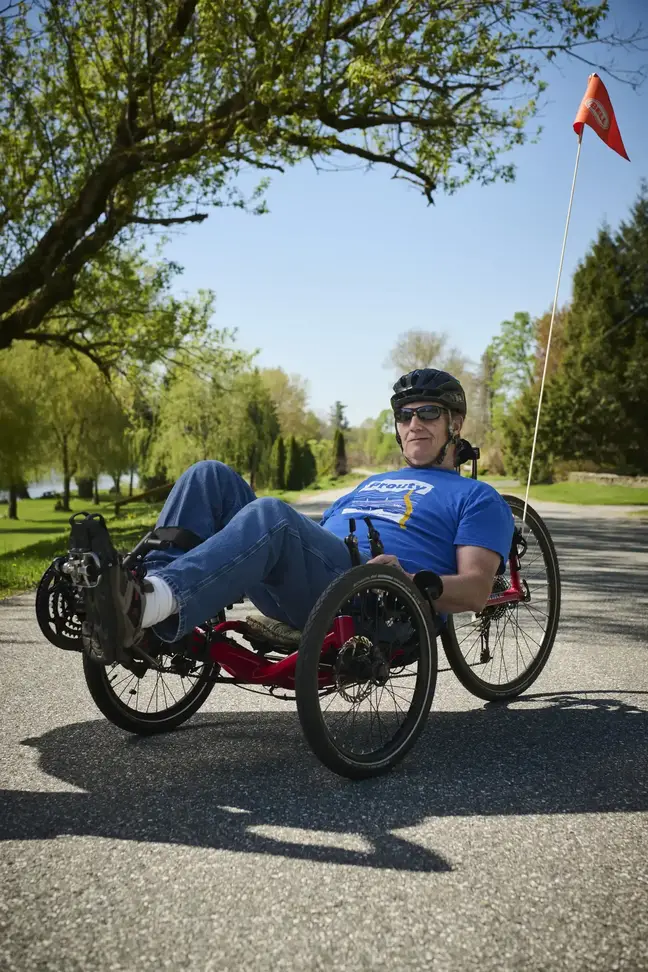
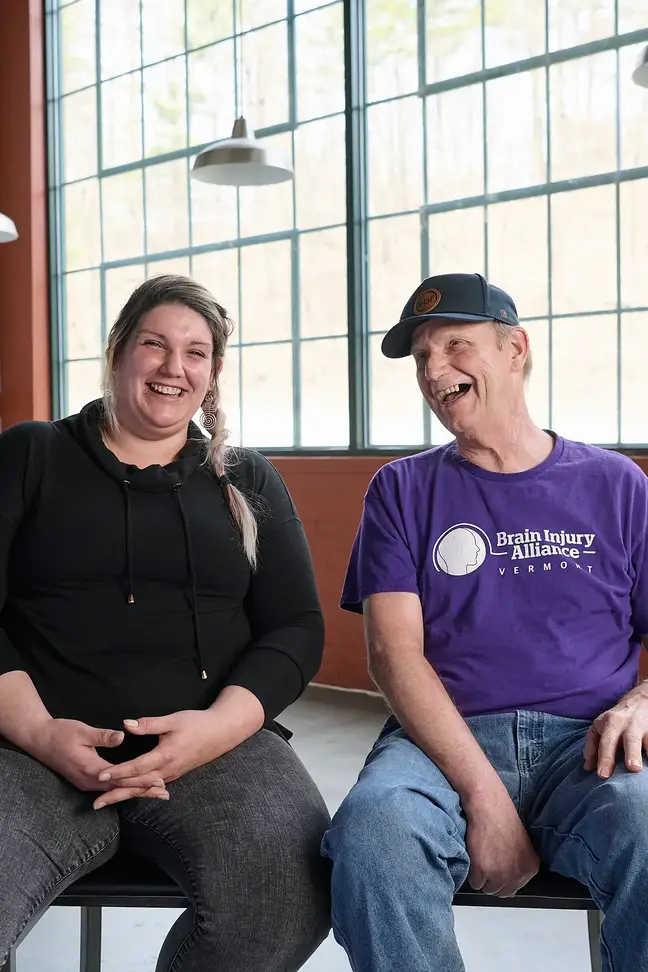
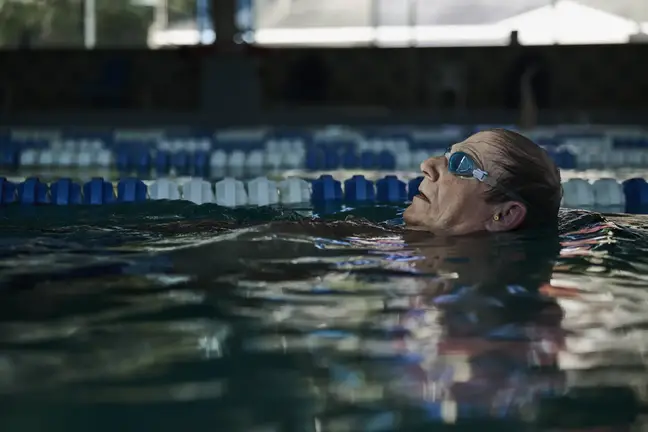
“My dad's been really motivated his whole life. He’s just really trying to be the best he can be at all times.”
—Perrin Burge, daughter of Chris Burge
Mind, Movement and an Active Life After Stroke
Biking, yoga, swimming. Meditation, video editing, photography. Whether it’s taking photos, biking along a trail, or driving from Vermont to Florida and back, Chris Burge keeps on going. And he doesn’t let anything get in the way. Not even the major stroke he experienced nearly 30 years ago, one that left him in a coma for three days, with impaired speech and partial paralysis—changing the course of his life forever.
“My dad's been really motivated his whole life. He’s just really trying to be the best he can be at all times,” said Perrin Burge, his daughter. The care teams at Mt. Ascutney Hospital and Health Center and the Miller Therapeutic Pool were a big part of his journey in regaining independence.
Tears, tears, tears. Work, work, work.
Burge always led a busy and creative life. He describes himself as constantly working hard, loving the outdoors, playing several musical instruments, and riding his motorcycles. At the time of the stroke, he was working as an environmental scientist—just one of the variety of jobs he’s poured his heart into.
“My dad’s personality is really free,” she said. “He’s also really spiritual as a person,” said Perrin Burge. She and her younger sister were just young children when the stroke happened. It was winter, the family lived in New Jersey, and doctors told Perrin’s mom to start looking for a nursing home.
They also said he’d be dead by 60—a notion Burge laughs at today. Now 67, he’s come a long way. The first six months after his stroke were especially difficult, and frustrating. “My brain did a great deal of mending during this time, and I just had to let it happen,” he said.
For at least two years, he mourned his past life, crying “tears, tears, tears,” he said. But he also put in “work, work, work.” He knew that to rebuild strength and mobility, repetition was key. “I was always trying to make progress in any way possible,” he said.
He concentrated on reforming lost connections in his brain, and used yoga, meditation, and Reiki to clear his mind. Burge credits these practices in his healing process: slowing down, breathing deeply, and connecting to his spiritual side are part of his routine.
“You have to do it every single day. And you can have hard days and you can cry, but you gotta keep at it,” Perrin said.
Just keep swimming
Ever since he was a child, Burge loved to go swimming. He was on his high school’s swim team, and always felt a natural ability to be in the water. And so when the Miller Therapeutic Pool at Mt. Ascutney Hospital opened in 1999, he was one of the first patients to join.
The 92-degree pool eases joint and muscle pain, and offers a variety of aqua therapy programs to help strengthen muscles. “It's another form of freedom, right? You enjoy your freedom and regain your freedom in every way you can,” Perrin says to her dad. She knows him well.
A team of support was there for Burge, including Michael Denmeade, the therapeutic recreation specialist at the time, Belinda Needham-Shropshire, OT, MSPT, MBA, the pool therapist and current senior director of rehabilitation services, and Cheryl Beaulieu, CCC-SLP, the speech language pathologist, who helped Burge re-learn how to say words beyond “help” and “bathroom.”
“When I met Chris in 1999, I was impressed by his drive to get into the pool and return to swimming,” said Needham-Shropshire, Director of Rehabilitation at Mt. Ascutney Hospital and Health Center. “As I got to know him more, I began to fully understand what a driven and amazing person he is in many aspects of his life.”
“Each time Chris accomplished a goal, he was unsatisfied and began looking for the next goal,” she said.
“They've helped profoundly.” Perrin said. “They’ve been instrumental in how he's been able to regain all of his movements.” So much so, that Burge not only moves for the sake of his own health—but for others, too.
Giving back
Every year, The Prouty raises millions for the Dartmouth Cancer Center, funding research, support services for patients, and more. It’s northern New England’s largest fundraiser for cancer research, and Burge has been a part of it for 10 years—riding his recumbent bike in the 20-mile biking event.
“I love to give back by doing fundraising activities,” he said. He rides his bike and fundraises for a number of other organizations that help others and have supported him, too, including the Long Trail Century Ride, Kelly Brush Foundation, and the Brain Injury Alliance of Vermont. That’s also where he’s taken up videography skills. Recently, he began interviewing other survivors about their stories, working with local public access TV station, SAPA, with the hopes of inspiring anyone facing challenging circumstances.
“It takes work but it just starts with baby steps,” is what Burge would tell someone in need of resilience or encouragement in their life. He would tell them to set goals, and to celebrate the achievements as they come. He still has big dreams ahead, and he wants to make it to the big screen.
“I think I’ve been given these hurdles in life to be able to spread my story, and in turn help others get over their hurdles,” he said. “I want to inspire people to keep going.”
It's his way forward
For this story, Chris Burge, who experiences aphasia, or limited expression of speech, was assisted by his daughter Perrin and Belinda M. Needham-Shropshire, Senior Director of Rehabilitation at Mt. Ascutney Hospital and Health Center. He also provided written responses to questions provided ahead of time.
On June 15, 2024, Chris Burge passed away after complications following a second stroke. Through the care provided at Dartmouth Health’s Mt. Ascutney Hospital and Health Center and his own unwavering resolve, Chris lived thirty rich and meaningful years following his initial stroke. He chose to tell his story in hopes of inspiring others.
More patient stories from around Dartmouth Health
Susan's Way Forward
Cardiac Patient
Treated by
Jock N. McCullough, MD / Lisa M. Olmstead, RN / Debra Fitzpatrick, RNC, AANAC / Sydney Reigle, MS, ACSM-CEP, ACSM-EIM
Treated at
Dartmouth Hitchcock Medical Center / Valley Regional Hospital
Peter's Way Forward
Colorectal Cancer Survivor
Treated by
Jeffrey R. Harnsberger, MD / Jenna Noone, RN, BSN
Treated at
Dartmouth Cancer Center at Dartmouth Hitchcock Clinics Manchester
Chris's Way Forward
Stroke Rehabilitation Patient
Treated by
Belinda M. Needham-Shropshire, OT, MAPT, MBA / Cheryl Beaulieu, CCC-SLP
Treated at
Mt. Ascutney Hospital and Health Center
Connor's Way Forward
Pediatric Cancer Patient
Treated by
Angela M. Ricci, MD / Geraldine Rubin, MD / Filomena Kersey, RDN, LD
Treated at
Dartmouth Health Children’s at Cheshire Medical Center / Dartmouth Health Children’s at Dartmouth Hitchcock Medical Center
Kathy's Way Forward
Orthopaedic Surgery Patient
Treated by
Timothy J. Lin, MD, MS
Treated at
Alice Peck Day Memorial Hospital
Krystal's Way Forward
Bariatric Surgery Patient
Treated by
Sarah H. Finn, MD / David A. Gould, MD
Treated at
Dartmouth Hitchcock Clinics Bedford / Dartmouth Hitchcock Clinics Manchester
Clover's Way Forward
Gender Affirming Care Patient
Treated by
Cheryl A. Sturgis, MSPAS, PA-C
Treated at
Dartmouth Hitchcock Medical Center
